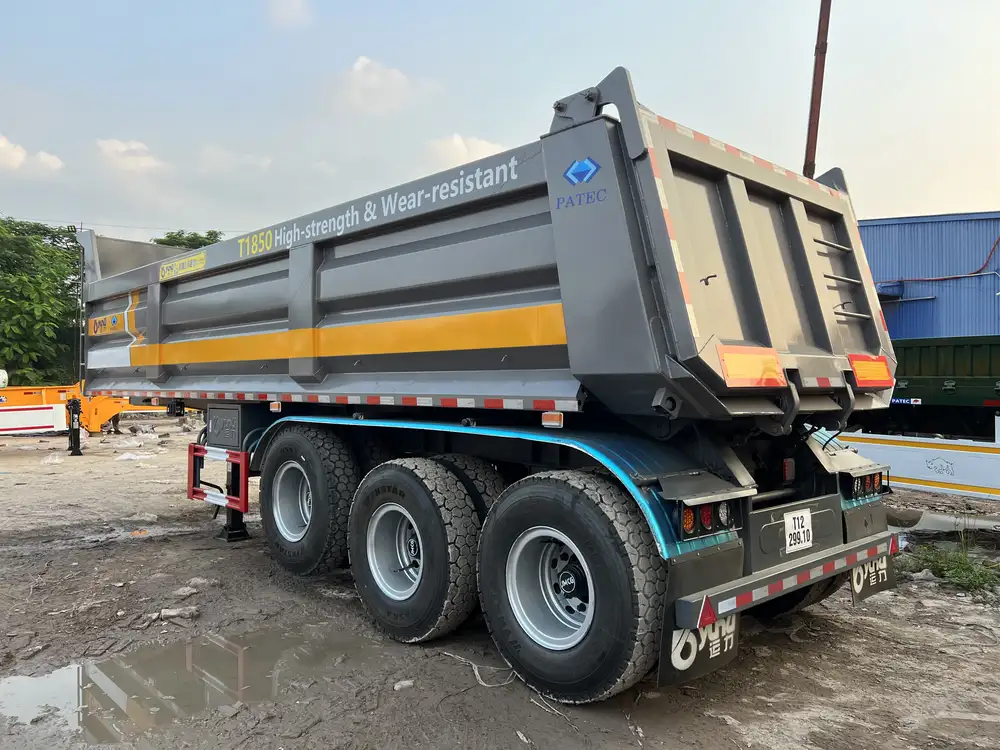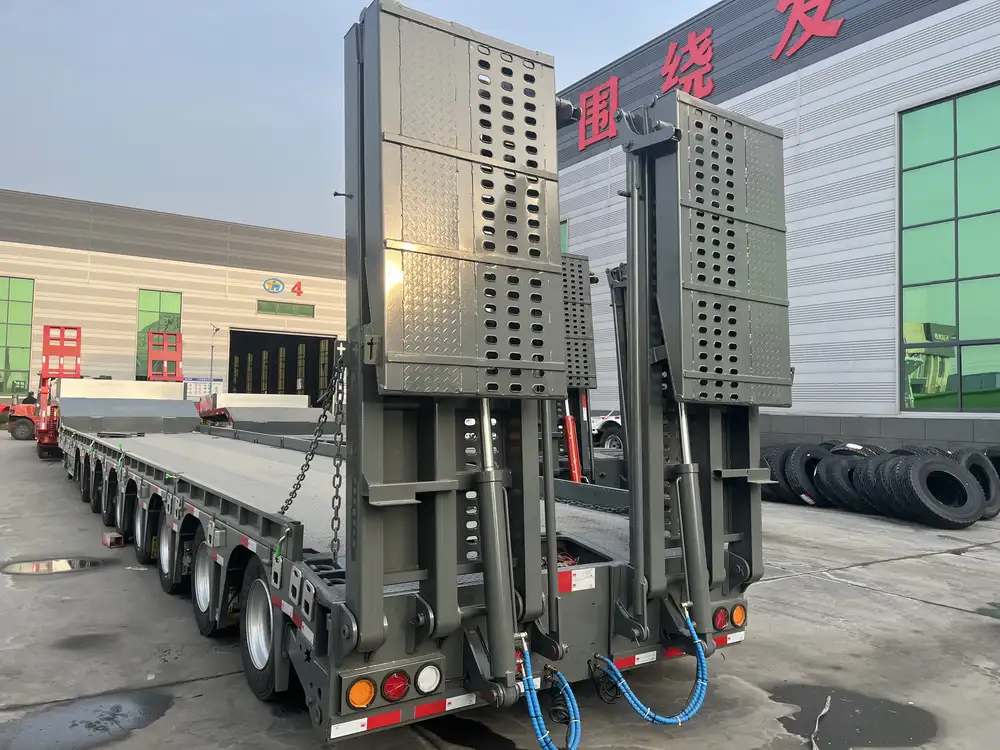Septic systems play a crucial role in managing waste in many homes, particularly those situated in rural areas or mobile living conditions, such as trailers. One prevalent issue trailer owners encounter is the unpleasant odor emanating from the septic tank. Understanding the root causes of these odors is essential, not only for comfort but also for maintaining the integrity and functionality of your waste management system. In this article, we will dissect the intricacies of septic tank odors, propose solutions, and suggest preventative measures to keep your living space fresh and clean.
The Anatomy of a Septic System
Before diving into the causes of unpleasant odors, it’s essential to understand how a septic system operates. A typical septic system includes:
- Septic Tank: A watertight container where solids settle at the bottom while liquids rise to the top, allowing for anaerobic digestion.
- Drain Field: A series of perforated pipes that distribute effluent into the soil, where it is filtered and treated.
- Pipes: Carry wastewater from the trailer to the septic tank and from the tank to the drain field.
Understanding this structure is crucial for diagnosing odor issues.
The Process: How Does Waste Is Treated?
- Separation: Wastewater enters the septic tank, causing solids to settle. This layer of solids, known as sludge, undergoes anaerobic decomposition.
- Digestion: Anaerobic bacteria break down organic matter in the absence of oxygen, creating gases such as methane and hydrogen sulfide.
- Effluent Release: The treated liquid effluent flows from the tank to the drain field, where it is further purified by soil microorganisms.

Ideal Conditions for Odor Management
In a perfectly functioning septic system, odors should be minimal. However, various factors can disrupt this delicate balance, leading to unwanted smells.
Common Causes of Septic Tank Odors in Trailers
1. Tank Overload
The most common reason for septic tank odors is tank overload. Factors contributing to this issue include:
- Excessive Water Usage: Long showers, frequent laundry, and running multiple appliances simultaneously can overwhelm the tank.
| Water Usage Impact | Recommendations |
|---|---|
| High Usage | Monitor water consumption; distribute tasks throughout the week. |
| Sudden spikes | Plan for heavy tasks on separate days. |

2. Improper Maintenance
Neglecting periodic maintenance of your septic system can lead to clogs, backups, and odors. Regular checks should include:
- Pump-Out Schedule: Septic tanks typically require pumping every 3-5 years, depending on usage. Failure to pump can result in solid buildup and odor.
| Maintenance Task | Frequency |
|---|---|
| Pumping | Every 3-5 years |
| Inspection | Annually |
3. Broken or Leaky Drain Field
A compromised drain field can lead to effluent not filtering correctly, causing odors. This can result from:
- Soil Saturation: Overwatering or high groundwater levels can impede drainage.
- Damage: Physical damage to the drain field can lead to leaks.
| Issue | Signs to Look For |
|---|---|
| Soil Saturation | Puddles or soggy ground near the area |
| Damage | Wet spots or bad smells in the vicinity |
4. Poor Ventilation
Proper airflow is essential for a healthy septic system. If your trailer’s system lacks proper ventilation, gases can build up, generating odors.
- Sewer Vents: Check that the vent pipes are clear from blockages like leaves or debris.
| Ventilation Issue | Remedies |
|---|---|
| Blocked Vents | Inspect and clear obstructions |
| No Ventilation | Consult a professional to install vents. |

5. Chemical Imbalance
The introduction of harsh chemicals and cleaners can disrupt the natural balance of bacteria in the tank, worsening odor issues.
- Avoid: Products containing bleach or anti-bacterial agents that can kill essential bacteria.
| Chemical Type | Effect on System |
|---|---|
| Harsh Cleaners | Disrupts bacterial balance; increases odor |
| Eco-Friendly Options | Maintains bacteria health; reduces odors |
Remedies for Reducing Septic Tank Smells
1. Regular Maintenance Practices
To keep your septic system efficient and odor-free, implement a regular maintenance schedule.
- Pump Tank: Increase frequency if you notice smells.
- Inspect System: Check for clogs and tank integrity.

2. Using Septic-safe Products
Instead of conventional cleaners, opt for eco-friendly products that will not disrupt the balance of bacteria in your tank.
| Recommended Products | Benefits |
|---|---|
| Bio-enzymatic Cleaners | Break down waste naturally, reducing odors |
| Vinegar | A natural disinfectant that is safe for septic systems |
3. Improve Ventilation
Enhancing ventilation can alleviate odors significantly. Ensure there are no blockages in the ventilation system and consider consulting a professional if necessary.
4. Water Conservation
Reduce the amount of wastewater generated within the trailer to allow the septic system to function properly. Tips for water conservation include:
- Limit Shower Times: Encourage shorter showers.
- Fix Leaks: Address any leaks in plumbing fixtures promptly.
| Water Conservation Tips | Impact on Septic System |
|---|---|
| Shorter Showers | Significant reduction in water usage |
| Repair Drips | Helps maintain a balanced system |

Preventative Measures for Septic Odor Control
To prevent any future odors emanating from your trailer’s septic tank, consider the following guidelines:
- Educate Residents: Ensure everyone knows what can and cannot be flushed or poured down the sink.
- Use Bacteria Additives: Regular use of septic-safe bacteria can help maintain the microbial balance.
- Limit Heavy-load Activities: Space out laundry, dishwashing, and showers to avoid overwhelming the tank.
Common Items to Avoid in the Septic System
| Item | Reason |
|---|---|
| Feminine Products | They can cause clogs and should be disposed of in the trash. |
| Non-biodegradable Wipes | These do not break down and lead to blockages. |
| Grease and Oil | These substances can solidify and block pipes. |
Conclusion: Say Goodbye to Septic Tank Smells
Experiencing foul odors from your septic tank can be a distressing concern for mobile trailer homeowners. Understanding the causes, implementing routine maintenance, and adopting preventative measures can significantly reduce or entirely eliminate these unwelcome scents.
By following the guidelines outlined above, you can create a healthier living environment within your trailer. Exerting just a little effort toward regular upkeep, being vigilant about what enters your system, and utilizing proper products ensures that your septic system remains functional and odor-free. If odors persist despite your best efforts, consulting a professional is advisable. They can provide insights and repairs necessary for a fully operational septic system.
Maintaining awareness of your septic system’s health is key. Recognizing the signs of malfunction early can save you from costly repairs and create a more comfortable environment—one without the bothersome odor of a malfunctioning septic system.



